Last weekend I gave a presentation on Creative Vibe Coding for the Vibe Coding Lab at NP3 MOBi in Groningen. I contacted my long-term friends at NP3 with the suggestion to organize an event on June 21st, 2025, on the use of AI coding agents for creative people. We had a joyful night of vibe coding with a great audience: they discussed, created, and listened very well.
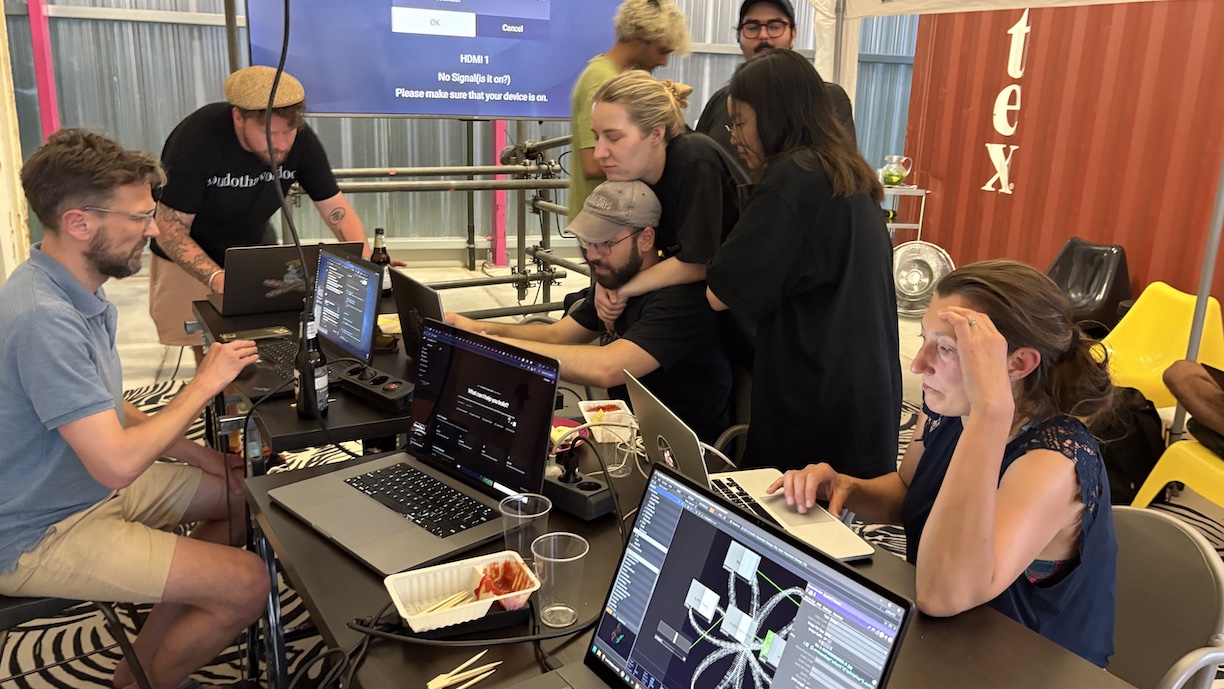
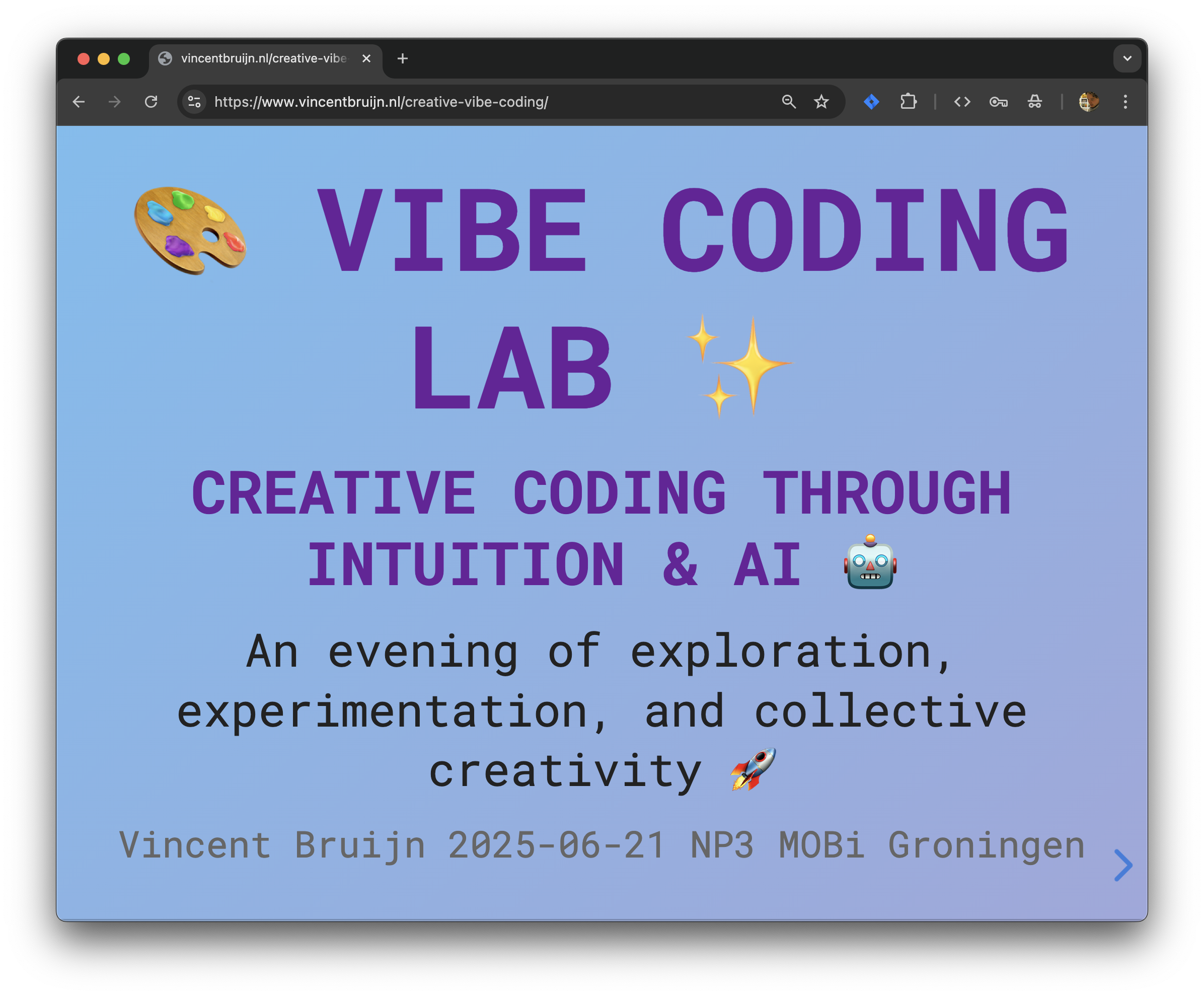
Since the rise of AI coding assistants and the increasing quality of the “coding mode” of ChatGPT, Claude, and v0, I realized that these tools have great creative potential. I noticed over the past months that I was able to progress creative projects that had been lying around on my laptop or on GitHub far beyond my expectations. With simple prompts I updated projects that are over 10 years old but needed a fix due to changes in browser features, projects to which I wanted to add more features or content, and projects I wanted to research deeper in a visual sense. All that was possible in my spare time, with the help of awesome new AI tools.
I was amazed and thought: I need to spread the word. Between 2009 and 2016 I had been a guest tutor at the Frank Mohr Institute in Groningen, a master’s program with a specialty in Media, Art, Design & Technology called MADtech. There I taught the creative programming language Processing to first and second year students: some students had coding experience, some didn’t. During those courses, I noticed that many students picked up coding pretty well, both from the technical side as well as from the creative side, but fairly slowly. Many saw the expressive potential of code as a paint brush or pencil to create something new.
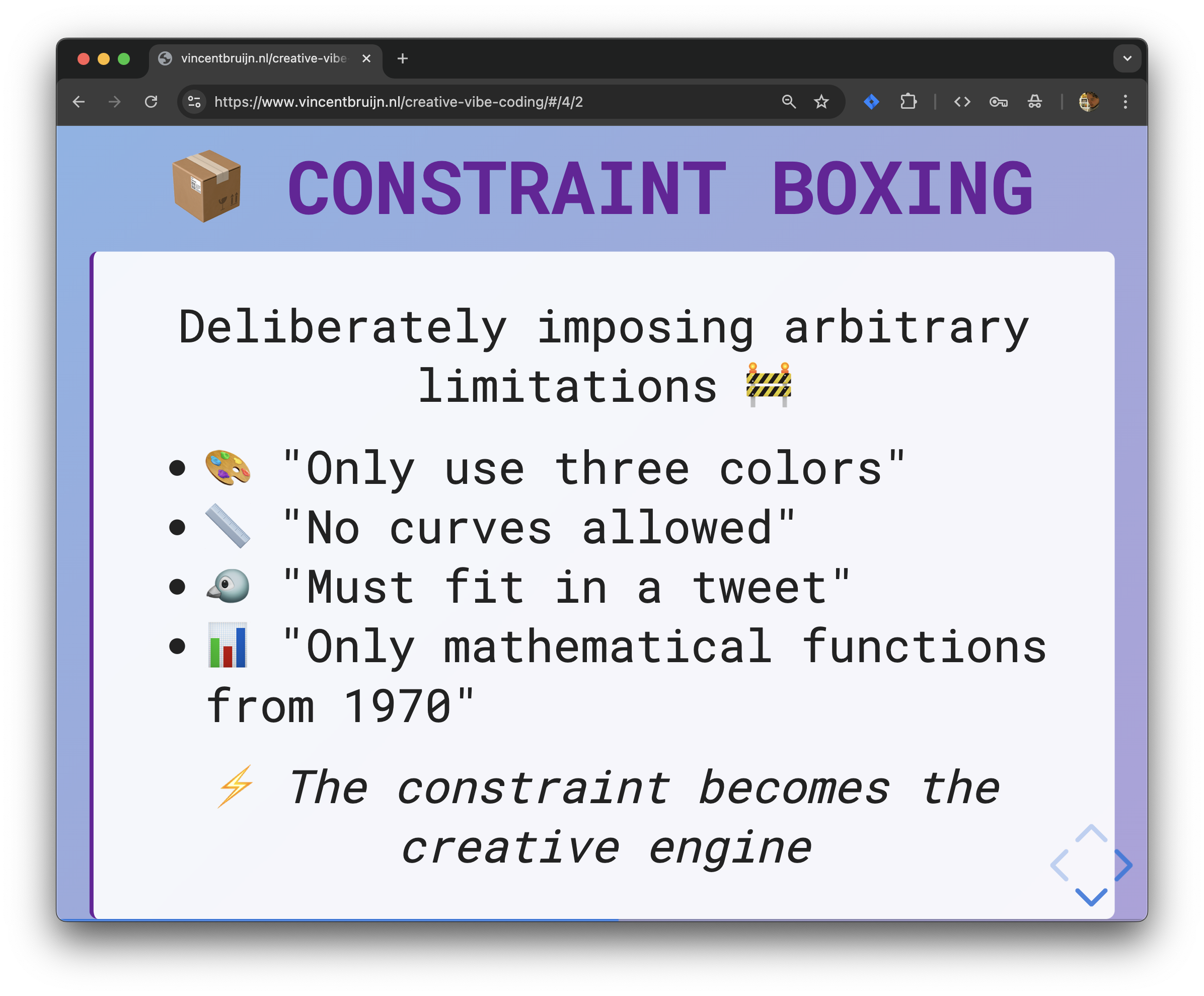
AI chat interfaces take this a step further: with great ease one can now produce code with the help of AI, one can joyfully express their creative intent in a prompt to have the AI write the code to show it. This purpose-driven approach is described as Vibe Coding.
After a call with R & Z from NP3 we planned Saturday June 21st, 2025, as Creative Vibe Coding night. As the evening approached I made a lot of notes regarding my experiences with coding with AI both from a technical perspective as well as from a creative perspective. I came up with a set of strategies for both facets, as people starting to use AI for creative coding should know about which tools are available and how they can use them for their expression.
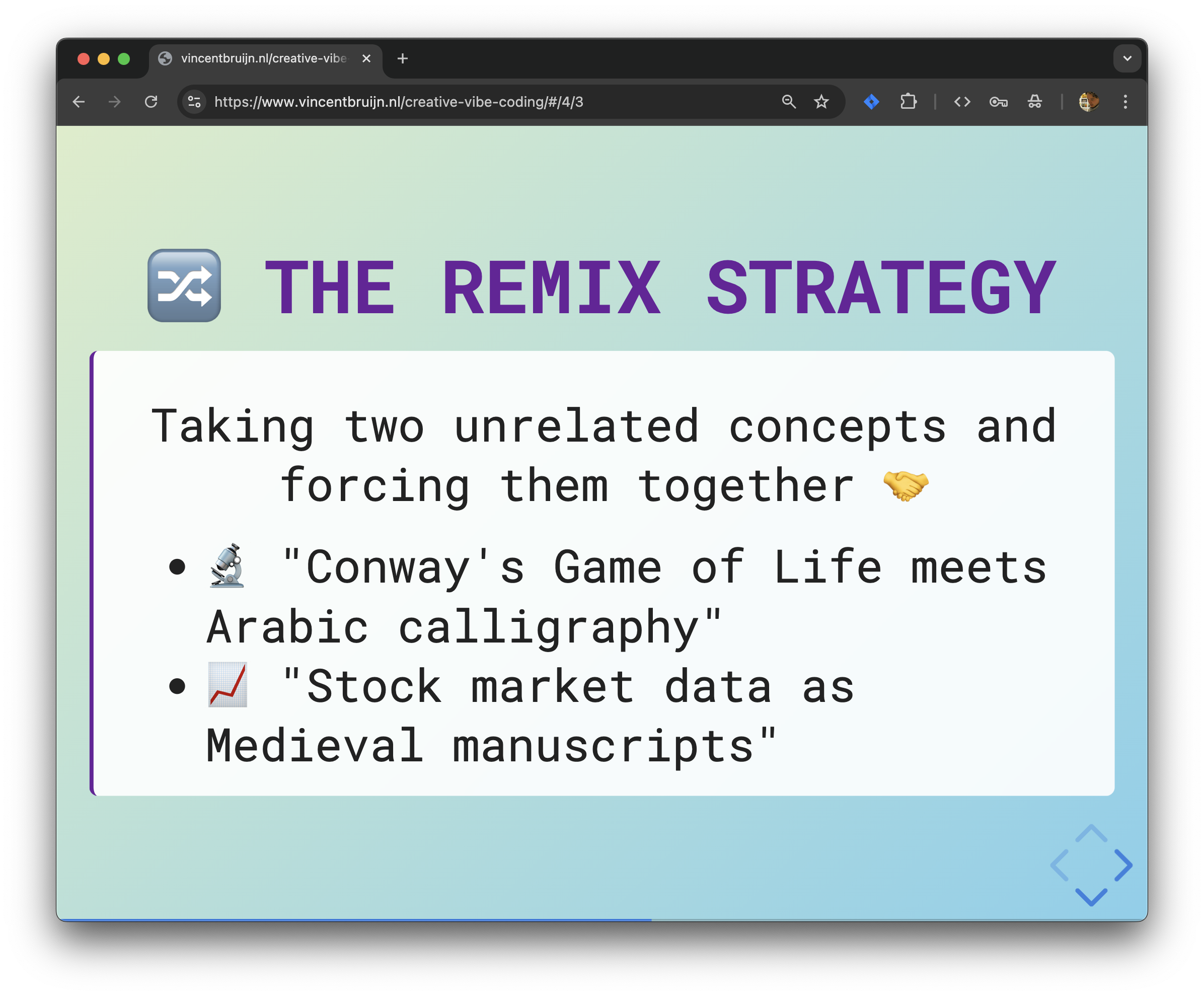
During my preparations, Anthropic released, in collaboration with Rick Rubin, “The Way of Code”: an 81-chapter interactive meditation that blends Taoist philosophy (specifically the Tao Te Ching) with AI-assisted creative programming. It introduces the term “vibe coding”: using intuition and natural language rather than technical skills to create interactive digital experiences.
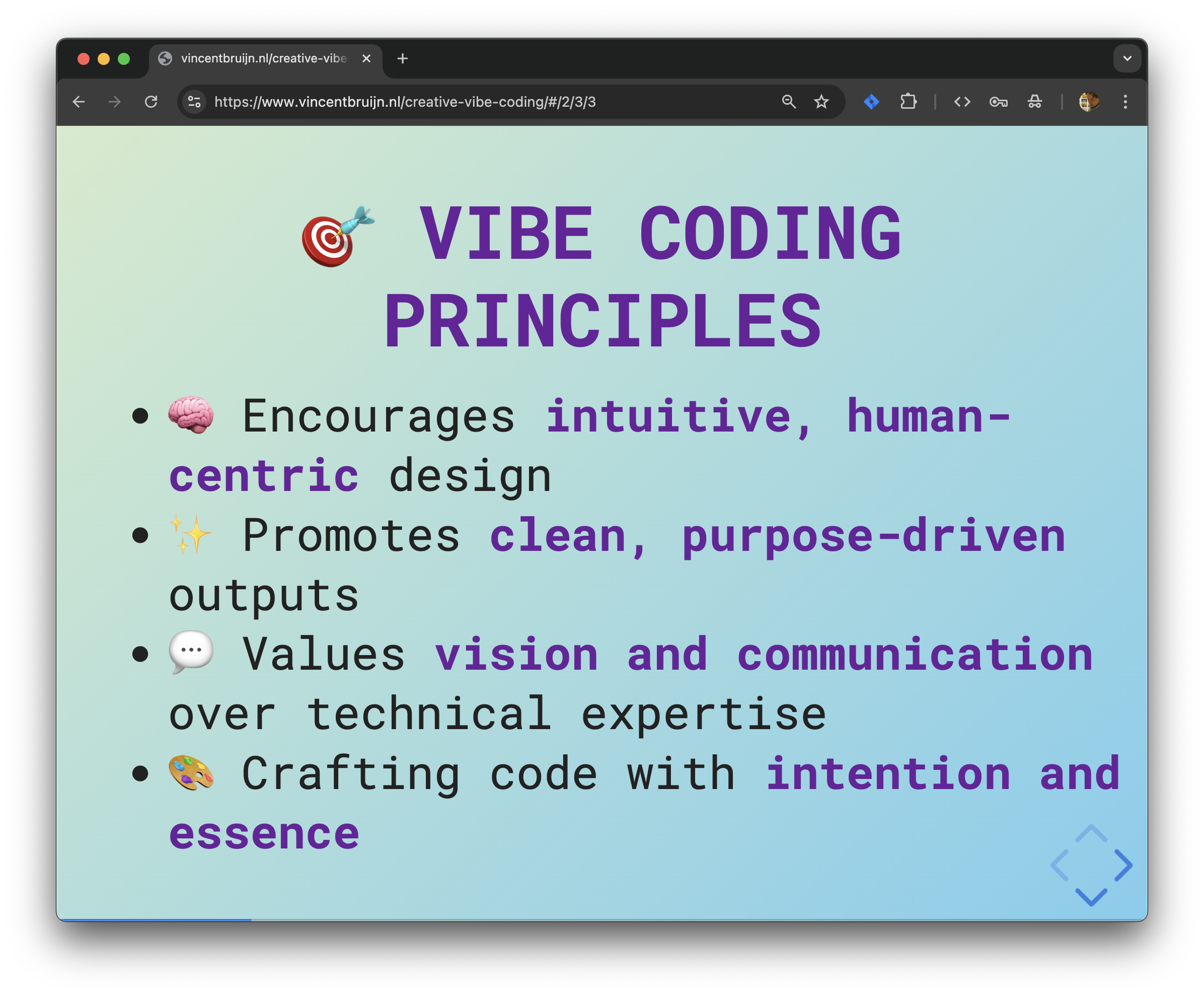
Spot on, in my opinion. But since I wanted a hands-on evening of vibe coding, I made my presentation more concrete and in analogy with musical “jamming,” I wanted to stress the collaborative strategy: vibe code together! As people sat close to each other, they inspired each other not only by what one could see on their screens, but also from the conversations that arose from them: tips on prompting were shared, philosophical discussions on what AI means for creative expression were started, analogies with the discovery and rise of photography were debated.
philosophical discussions on what AI means for creative expression were started
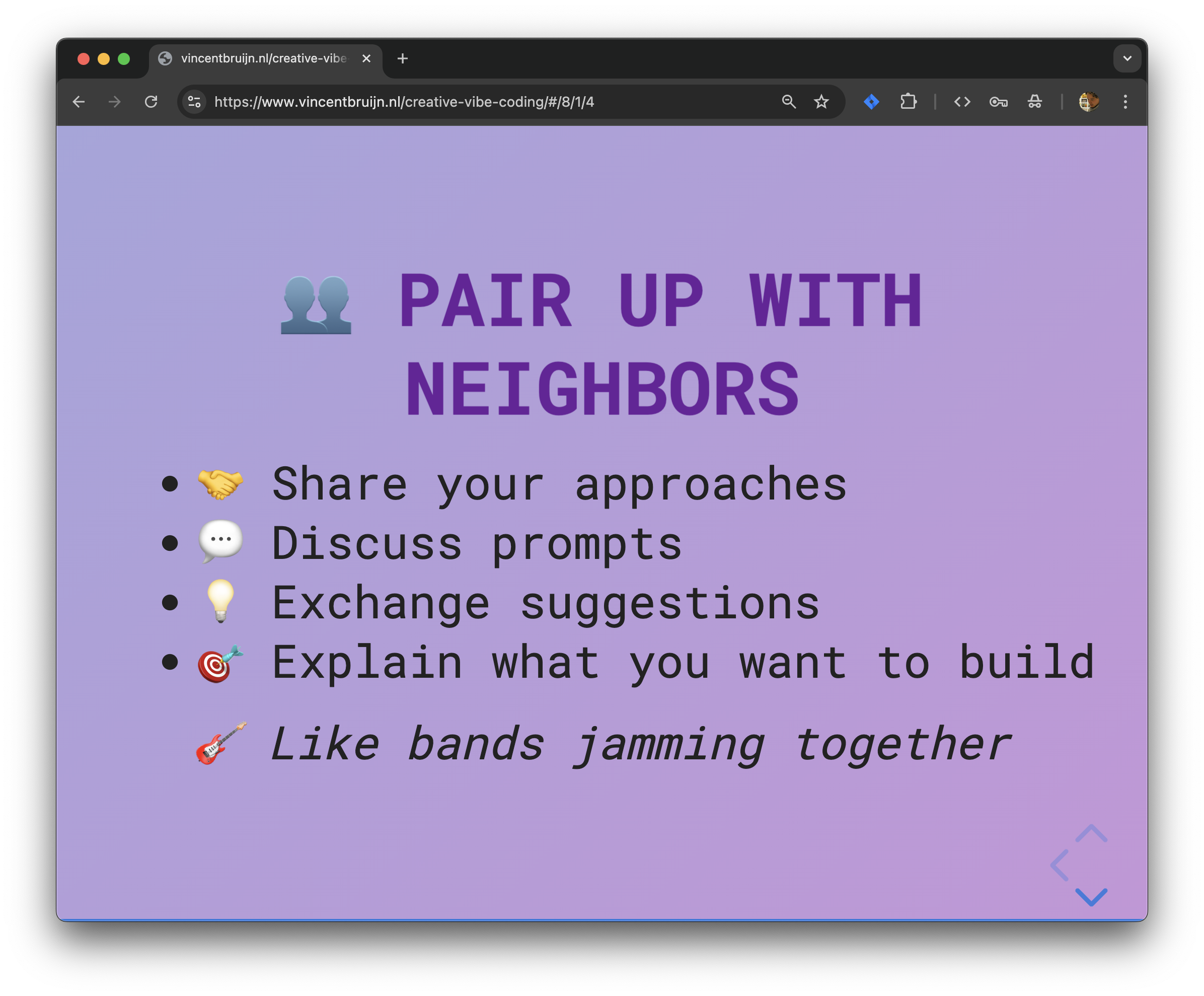
The audience saw the immediate potential of AI coding assistants, even some who never had any programming experience were able to use natural language to create awesome digital expressions in basic web technologies by iterating and experimenting without the traditional barriers of syntax errors or technical debugging that often discourage creative minds from pursuing programming. One attendee, with no programming experience at all, used Vercel’s v0 to create a bunch of bright colored flowers that could be modified in color and size by using slide controls. Another one let v0 write the classic Windows Paint app and added additional disruptive controls that he planned to use for VJing. For me, this evening confirmed again that AI coding assistants democratize programming. Much faster than during my teaching courses students can now embrace programming through vibe coding, to express themselves. These technologies make programming available for a wide audience: the future of coding is changing drastically already!
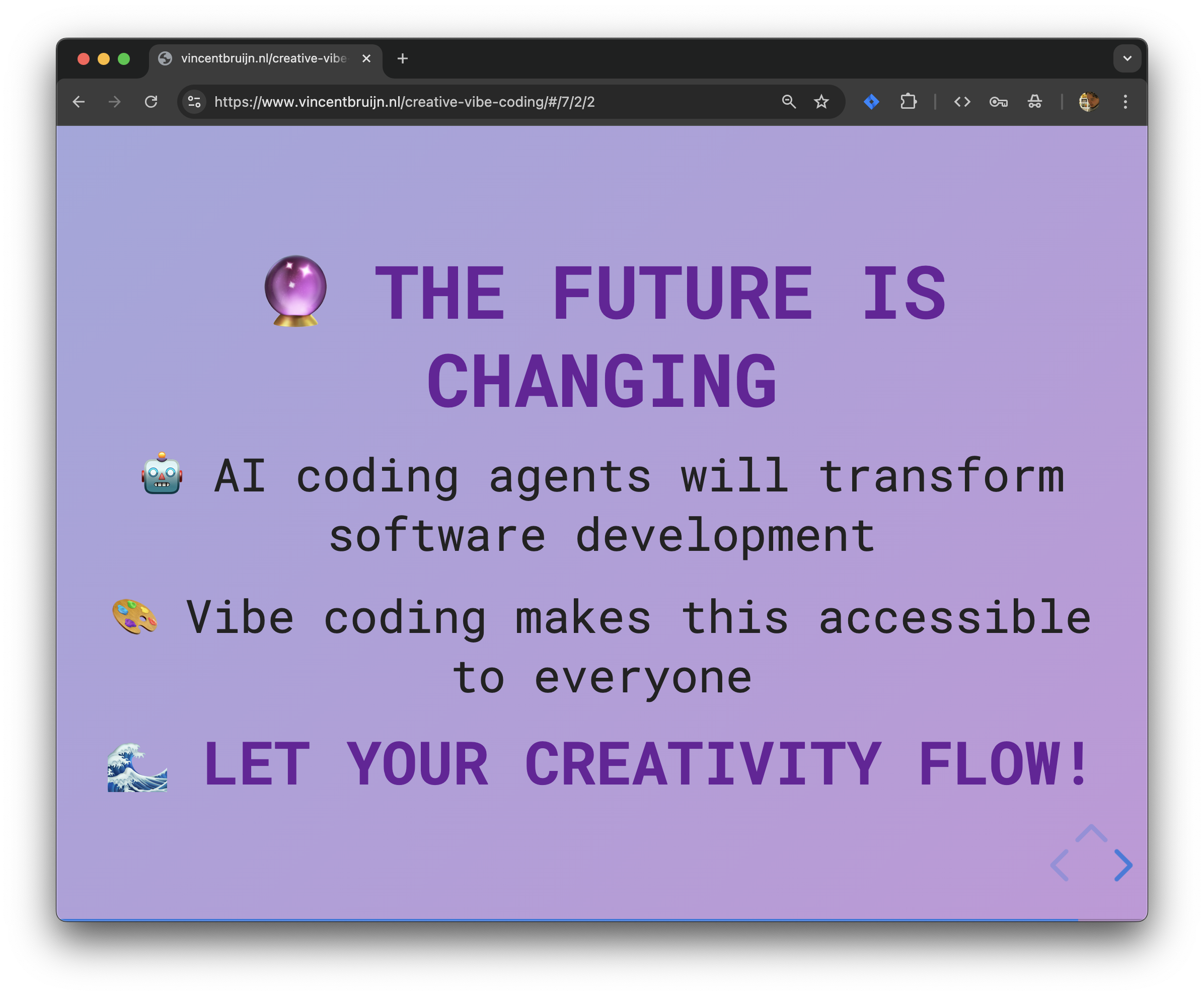
We aim to organize a second evening for the Vibe Coding Lab sometime this fall, keep an eye on NP3’s mailing list or visit this site more often!
The complete deck is also available.